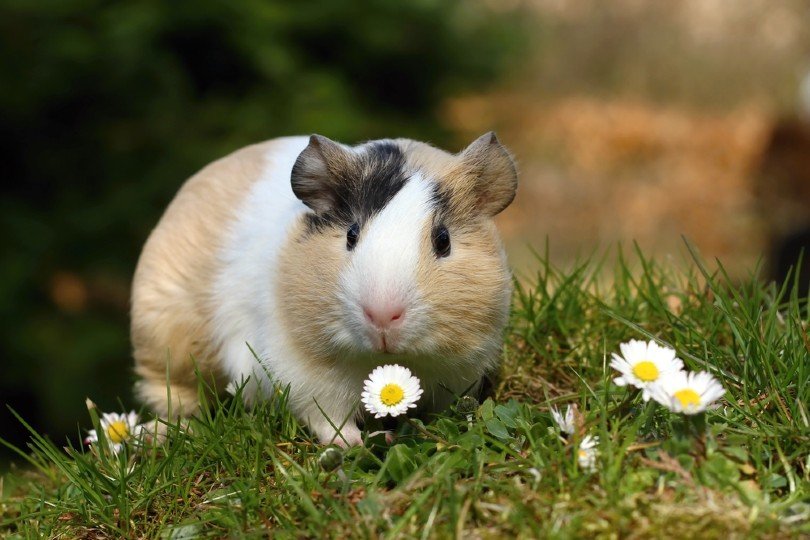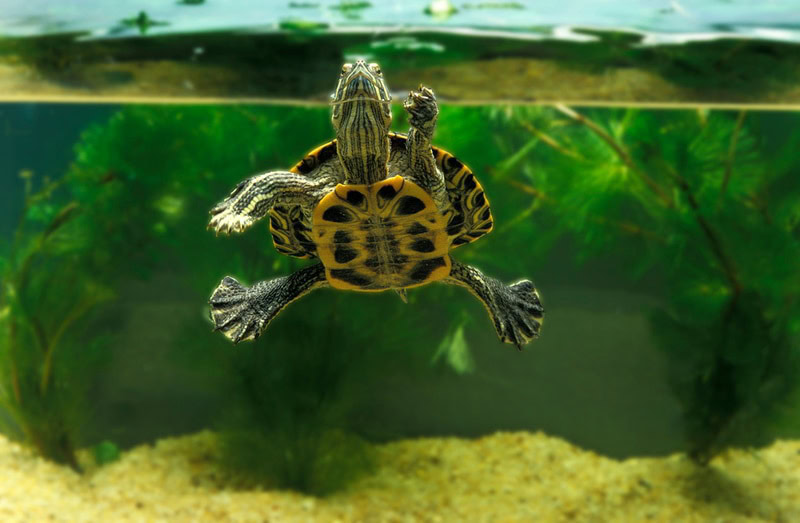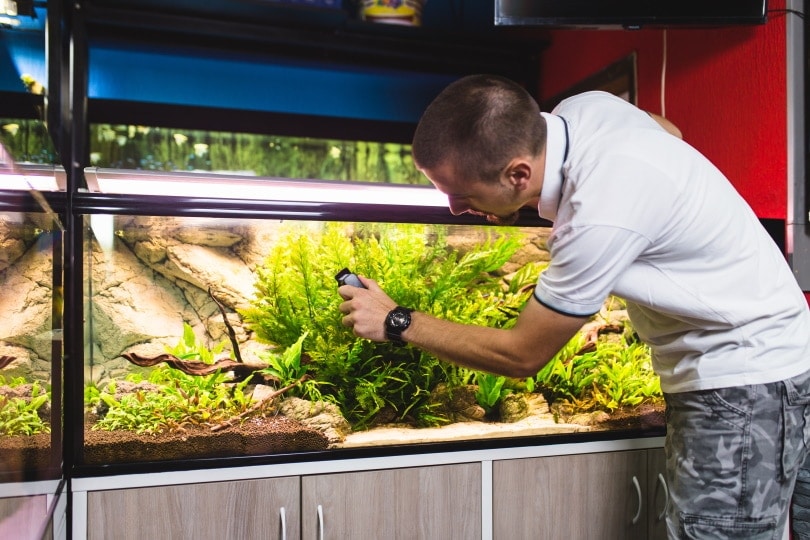VET APPROVED

The information is current and up-to-date in accordance with the latest veterinarian research.
Learn more »If you have recently purchased a guinea pig as a pet, one of the most frequently asked questions people have is if their furball will be alright living alone. The short answer is no, guinea pigs can’t live alone as they are highly social creatures. While a guinea pig might survive alone, this is not considered acceptable according to current welfare standards. We are going to take a closer look at the guinea pig to learn more about it and its preferred living conditions so you can provide your pet with the happiest life possible.

At What Age Can a Guinea Pig Come Home With Me?
A baby guinea pig is called a puppy, and these cute little creatures become adults at about 6 months of age. Most people like to purchase puppies because they are even cuter than the adult versions. However, guinea pigs younger than about 4 weeks should remain with their mother, and most experts recommend waiting until the guinea pig is at least 7 weeks. These newborns will have a difficult time surviving on their own because they need specialized care that only a mother can provide.
The mother will nurse them for 2-3 weeks and sometimes longer. She will also teach the pup how to eat solid food, which it may begin doing as early as 1 week after birth, although they will continue nursing for 2-3 more weeks.
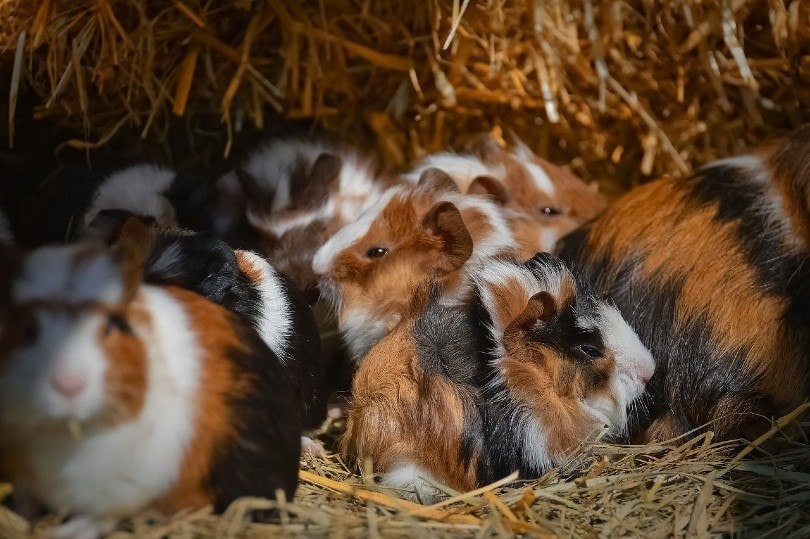
How Do Guinea Pigs Interact With Each Other?
Your guinea pig is a social animal that prefers to live in a large group. Like many other rodents, guinea pigs can have large families.
Introductions between male guinea pigs should be done slowly, ideally on neutral ground, and supervised closely over time. Two male guinea pigs may show dominance behaviors such as rumble-strutting, teeth chattering, or mounting when first introduced. These behaviors are normal as they establish hierarchy and may continue for several hours or even a few days. However, close observation is a must. If the interaction escalates to chasing with intent to bite, raised hackles, or actual fighting that causes injury, the guinea pigs may not be compatible and should be separated immediately.
The presence of a female often triggers competition, territorial behavior, and serious fighting among males, even those who were previously getting along. It is not recommended to house a female with multiple males unless the males are neutered and introductions are done with extreme care.
A larger enclosure will also help the animals get along, and keeping them all around the same age allows them to be more comfortable together.
How Do I Know If My Guinea Pig Is Lonely?
Your guinea pig can get depressed, and the signs include excessive sleeping and a refusal to be held or petted. It is common to see these signs in your pet when you first get it home from the pet store, especially if it shared a cage with other guinea pigs that you didn’t bring home with you. It may also show these signs if a long-time cage mate dies. Many experts believe that this behavior demonstrates depression and even loneliness in your pet.
If you notice these signs and there seems to be no reason for their onset, it could be that your guinea pig is lonely. However, it could also be a sign of a health problem, so we recommend taking your furball to the vet to have it looked over.
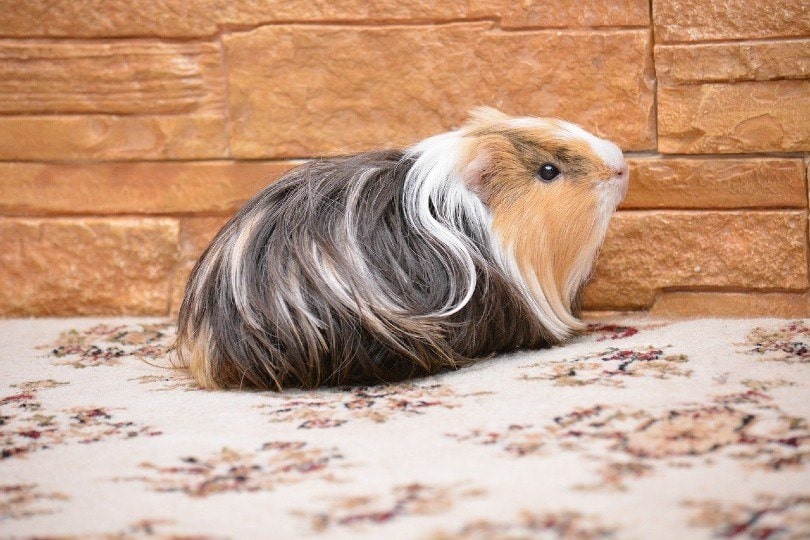
How Do You Entertain a Single Guinea Pig?
Hopefully, by now you understand that guinea pigs need at least one companion of their species to thrive. However, if for some reason you must keep one alone temporarily, there are several ways to help keep them entertained and emotionally supported.
- You can purchase another guinea pig. Remember that introductions should always be done gradually, on neutral ground, and under supervision.
- You can spend more time with your guinea pig. Most experts say spending 2 hours or more each day will help you bond and make your pet more comfortable.
- Give your pet some toys. Your guinea pig would like to play with balls, and you can give them balls made specifically for small animals from hay, willow, or untreated wood. Guinea pigs also like to explore tunnels that you can purchase or make out of many items around your home. Wrapping paper tubes and paper towel tubes make great tunnels that your pet can enjoy. You can even create cardboard obstacle courses to try to stimulate its mind.
- Create hiding spaces in the cage. Your pet may enjoy some time alone to cope with the new situation, and many times a small hiding space can help.
- Give your guinea pig some time outside the cage each day to explore the environment. You will need to seal the room off well to keep it from escaping into the rest of the house. There should be no exposed wires, chemicals, or holes in the wall that it could squeeze into, especially around radiators and pipes.


Summary
We recommend keeping your guinea pigs in pairs because they are social animals that always prefer to live in groups. Several males living together with females can sometimes be problematic if they are not neutered. It is not recommended to keep guinea pigs as pets if you can only have one. Spending a few hours each day with your pets and supplying them with toys can help, but nothing can take the place of a same-species companion.
Featured Image Credit: Miroslav Hlavko, Shutterstock
